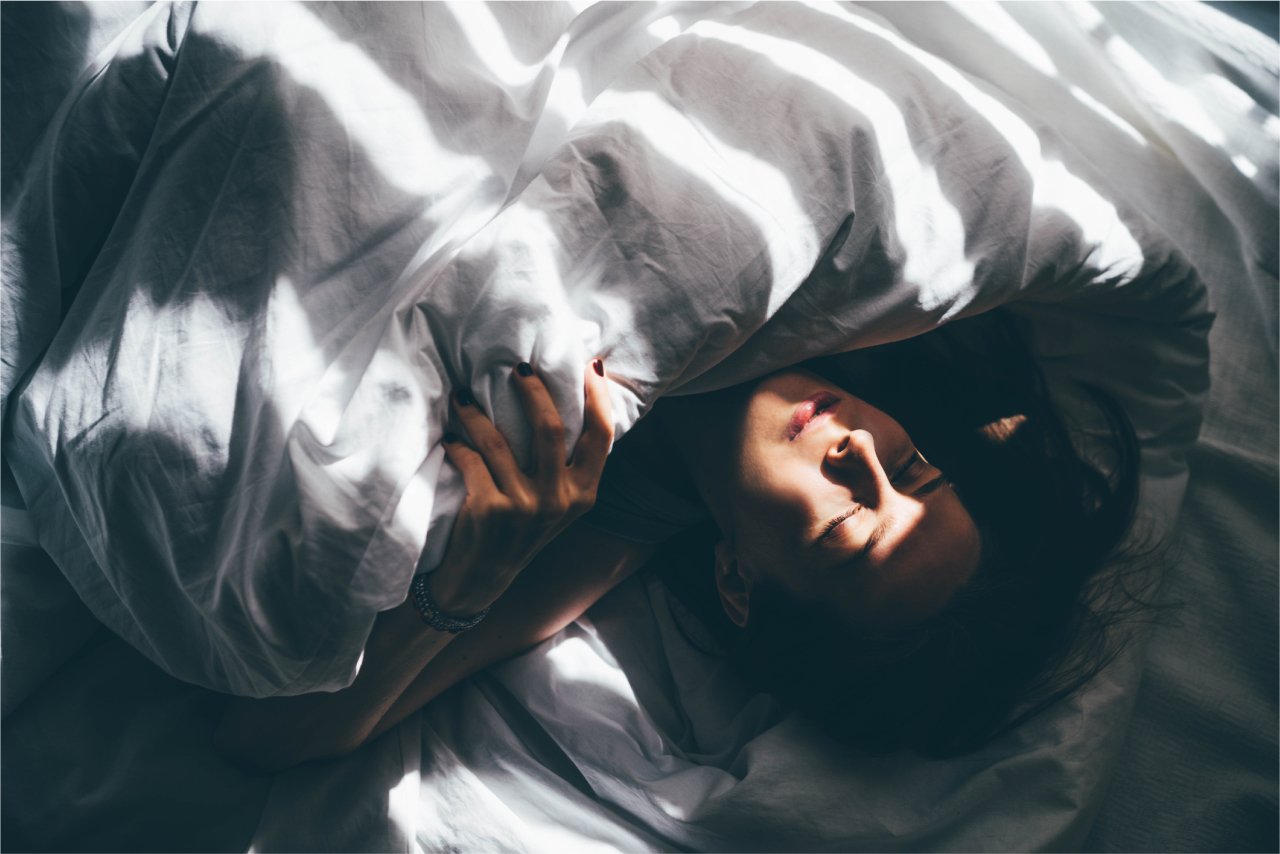What is sleep hygiene? Here's how to use it to get better sleep
Learn what sleep hygiene is and how this routine can help you get better sleep. Plus, the signs of good and poor sleep hygiene and tips to get your best rest.
Good sleep can sometimes be hard to come by, leaving you feeling tired and groggy the next day. But creating the right habits for a great night's sleep can go a long way to helping you feel rested and ready for anything. If you’re looking to get better sleep, there are many strategies, such as sleep hygiene, that can help you prepare for bed.
What is sleep hygiene?
Sleep hygiene is a routine you can implement before bed to help you get a good night's sleep. Although it’s called sleep hygiene, it’s not about how clean your bedroom is—though that can help. Instead, it's about having consistent and positive habits that set the tone for restful nights.
Sleep hygiene can help your body wind down for the night. It includes your bedtime routine, like reading a book, but also what you do during the day—like how much coffee you drink, when (and what) you eat, or when you exercise.
Good sleep hygiene means you’re doing everything you can to create the perfect space and mindset for good quality, deep sleep. Your bedroom environment is important—it helps to keep it cool, quiet, and comfortable. And your pre-sleep activities matter, too, like choosing to unwind with some gentle stretches instead of screens, like TV or scrolling on your phone.
In short, sleep hygiene is a combination of habits that can lead to you waking up refreshed in the morning and ready to tackle the day. And the best part is that anyone can improve their sleep hygiene—it's all about finding what works for you and sticking to it.
The importance of good sleep hygiene
Sleeping well is just as important as eating healthy or staying active. Good sleep hygiene can help you fall asleep faster and stay asleep longer, so when morning comes you feel well-rested and ready for a new day.
When you sleep well, your body gets a chance to repair itself, your brain can sort through what you learned that day, and your emotions can take a break and reset.
Being well-rested can make your mind sharper for solving problems at work, keep your mood steady, and even help your body fight off colds and infections.
Giving yourself a heads-up that it’s bedtime through a routine means your body can start getting ready for a night of great sleep.
3 signs of poor sleep hygiene
Your body will often give you signals if you’re not getting the rest you need. Think of them as little alarms, letting you know it’s time to check on your sleep habits and make some changes. By recognizing these signs, you can start to make the tweaks that can help you get the quality sleep you need.
Trouble falling asleep: If you're lying in bed for ages before you fall asleep, it could indicate poor sleep hygiene. Your mind should be able to calm down at bedtime, but if it's still racing from the day's events, it might be time to look at your pre-bedtime habits.
Waking up a lot at night: Waking up often, especially if you feel anxious at night, can fracture your sleep cycle, leading to less restorative sleep. If you find yourself waking up over and over again, it could be a hint that something in your sleep environment, routine, or even your health might need attention.
Feeling sleepy during the day: We all have a slow day now and then, but if you're regularly feeling like you could doze off during a meeting or while watching your favorite show, it could be a sign that you're not getting the quality sleep you need at night. A nap can be a good short-term solution.
How sleep hygiene affects your health and wellbeing
Practicing good sleep hygiene isn’t just about preventing those yawns and the need for coffee. It can bring a huge boost to your health and happiness. When you get enough sleep, your body gets to work repairing muscles, sorting memories, and even making sure your emotions are in check for the next day.
Sleeping well can keep your brain sharp for tasks that need attention to detail, and it can keep your mood bright, too. Sleep can also play a big role in keeping you healthy—it's like your body's shield against getting sick.
You can create positive sleep hygiene by setting up the right habits and environment. When your body knows it's time to wind down because you've got a regular schedule and a comfy, quiet sleep space, it can handle all its nightly tasks better. Meaning that when you wake up, you feel ready to tackle the day.
Sleep hygiene routine for your best rest
Building a sleep hygiene routine doesn’t have to be hard. To get a good night’s sleep, create a regular routine and develop it into a habit.
Dim the lights: Bright lights tell your brain it's still day, so lower the lights to give your brain the cue that it’s nighttime.
Turn off electronics: Screens keep your mind buzzing. Power down at least an hour before bed to help your brain settle.
Find what relaxes you: Whether it's listening to soft music, writing down your thoughts in a journal, or doing some gentle stretches, do something that eases your mind every night.
Stick to a sleep schedule: Go to bed and wake up at the same time every day, even on weekends. Your body will thrive on routine.
Keep your bedtime routine consistent: Do the same relaxing things each night so your body knows sleep is coming soon.
How to get better sleep with these 5 sleep hygiene tips
Ready for a night of better sleep? Trying even one of these tips could help you get a better night’s sleep. Put all five into practice, and you may just get the best sleep of your life.
1. Create a restful environment
Make sure your bedroom is quiet, dark, and cool. It should feel like a cozy nest that's just for sleep. If there are external sounds that could disturb you, like the rumble of traffic, try sleep sounds to block them out.
💙 Find your perfect cozy background track for sleep with our various soundscapes, like White Noise Ocean Surf.
2. Limit screens in the bedroom
Stop scrolling in bed—leave your phone, tablet, and laptop out of your sleep space. If you use Calm’s guided meditations or sleep stories, try to limit the amount of time you spend looking at the actual screen.
💙 Press play on Mel Mah’s Peaceful Sleep meditation, set your phone aside, and melt into restfulness.
3. Avoid big meals before bedtime
Avoid heavy or large meals when it's late. A full stomach can keep you up, so have a light bite if you're hungry.
4. Get moving during the day
Regular exercise is great for sleep, but finish your movement a few hours before bed, so you're not too energized to sleep.
💙 Try a Running Meditation to move your body while relaxing your mind. Not into running? Don’t worry—this meditation is perfect for walking, too.
5. Establish a pre-sleep ritual
Whether it’s gentle bedtime yoga, a warm bath, meditation, or a chapter of a book, do something soothing to transition into sleep time.
💙 Follow Along Body Scan is a 4-minute mini meditation that encourages you to acknowledge your body and mind, preparing you to settle into sleep.
What is sleep hygiene FAQs
Q: What is the meaning of sleep hygiene?
Sleep hygiene is all about the good habits that help you have a great night's sleep. It's the routine you do before bed that helps your mind and body get ready for rest.
Q: What are the 4 pillars of sleep hygiene?
The four main parts of sleep hygiene are:
Your sleep schedule
Sleep environment
Pre-sleep activities
Daily habits
Q: What is the 10-3-2-1-0 rule for sleep?
The 10-3-2-1-0 rule is a simple plan to help you sleep better and is made up of the following:
No caffeine 10 hours before bed
No food or alcohol 3 hours before
No work 2 hours before
No screens 1 hour before
A goal to hit 0 snoozes in the morning.
Q: What are the 3 S's of sleep hygiene?
The 3 S's of sleep hygiene are the key areas to focus on for good sleep:
Sleep schedule
Sleep environment
Sleep routine
Calm your mind. Change your life.
Mental health is hard. Getting support doesn't have to be. The Calm app puts the tools to feel better in your back pocket, with personalized content to manage stress and anxiety, get better sleep, and feel more present in your life.













